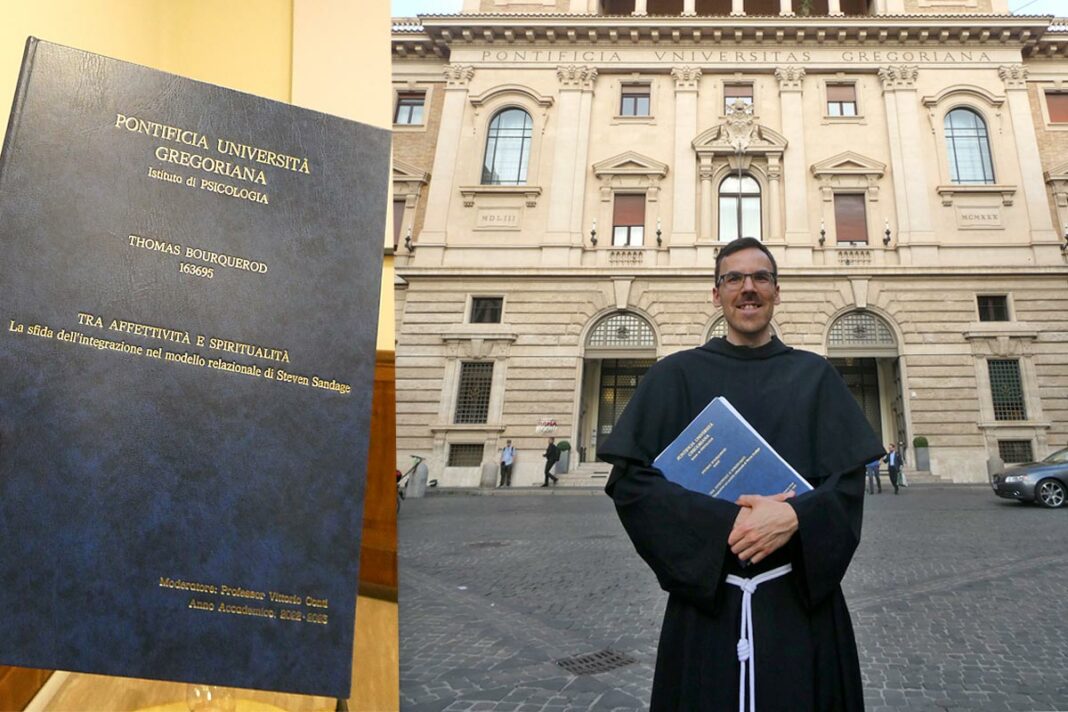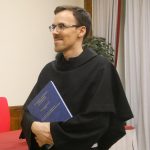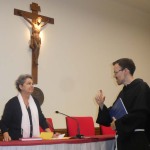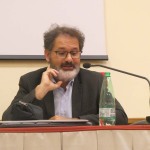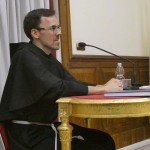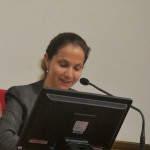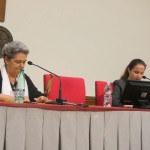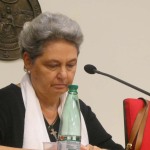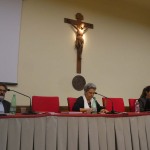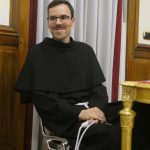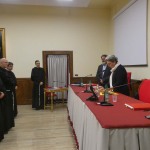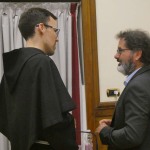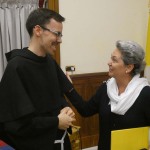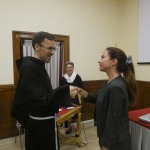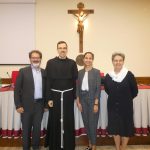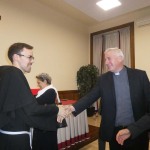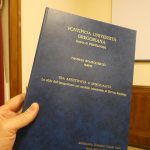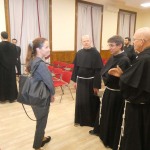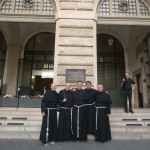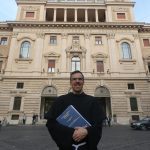On Tuesday, October 17, 2023, at 4:00 p.m., Friar Thomas BOURQUEROD of the Provincial Custody of St. Bonaventure in France-Belgium defended his doctoral thesis at the Institute of Psychology of the Pontifical Gregorian University in Rome.
The academic event began with the presentation of his thesis, entitled: “Between Affectivity and Spirituality – The Challenge of Integration in Steven Sandage’s Relational Model.” The Examination Committee consisted of Professors Vittorio CONTI (Moderator), Katharina Anna FUCHS (Censor), and María Rosaura GONZÁLEZ CASAS (President). Some friars from Brescia and Rome were also present for the defense of the doctoral thesis.
The presentation of the thesis was preceded by a moment of prayer proposed by the candidate. In his presentation, Friar Thomas summarized some of the essential elements of his research. His Ph.D. draws on personal reflections suggested by life in his own religious community. In particular, there is the awareness that living in community implies the possibility of being exposed to one’s own vulnerability and that of others. This highlights the fact that every relationship, even one’s relationship with God, involves some level of challenge. The thesis taken up in the study focuses in particular on the possibility of sharing one’s feelings, thoughts and needs, sincerely, and without fear of being judged or rejected, in order to grow in communion with God and others.
Moreover, the work fits into the context of the discussion about the issue of integrating affectivity and spirituality, taking inspiration from Professor Luigi RULLA’s reflection, when he recognizes that: “modern man, including the Christian, lives in a world full of ruptures and divisions: between faith and reason, between philosophy and theology, between culture and religion, and between science and philosophy.”
Based on these assumptions, empirical research was used to examine the influence of affectivity on the perception of one’s relationship with God, and the role of self-differentiation in this relationship. The results showed that the interaction between affectivity and interpersonal relationships could be a key factor in a person’s experience with God. In this sense, it suggested that interpersonal relationships could play a significant role in shaping a person’s perception of himself and his relationship with God, suggesting that they could either foster or hinder an individual’s journey of integration.
This research opens the door to many practical implications for religious communities, the formation of consecrated persons, the topic of affective maturity, and the practice of guiding and couseling in general. For example, it suggests that practical tools should be offered for integrating one’s emotions into one’s relationship with God, encouraging self-awareness and the exploration of one’s history as an integral part of growth in spiritual life.
The academic event concluded with a few words of thanks from the new doctor and greetings to all those present.
Friar Thomas BOURQUEROD






